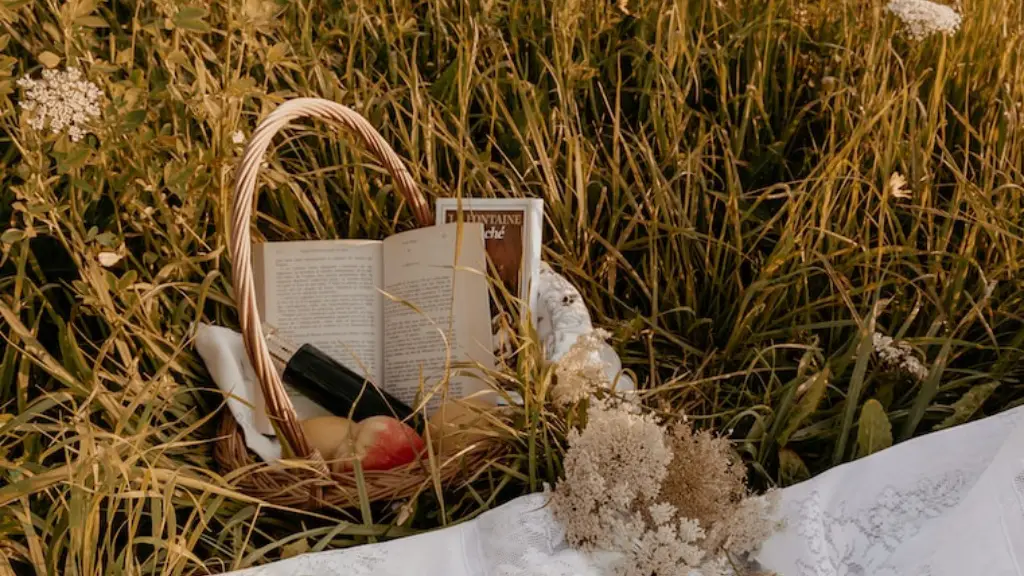Creative writing and poetry can be a way for self-expression, and having a platform to publish that work can be deeply rewarding for any aspiring author. But if you don’t know where to start in submitting your poetry, it can be daunting. Here’s a list of eight great places you can submit your work, depending on your needs.
1. Submittable
Submittable is a platform used by thousands of publications, magazines, theaters and publishers around the world to manage submissions. It operates as a marketplace matching writers to different publications, giving people a wide array of places to submit their work. It has a user-friendly dashboard so you can track your submission progress and even rate publications you’ve submitted to.
2. Poetry Society of America
The Poetry Society of America is a nonprofit organization which has been “serving poets and champions of poetry since 1910.” PSA offers various contests, grants and other opportunities for poets to get their work featured. Submitting work is easy, as the organization offers many ways to submit, for instance, through snail mail or email. There are dozens of awards and prizes, so anyone interested in submitting their work should take a look and see what’s available.
3. The Poetry Foundation
The Poetry Foundation is the largest publisher of contemporary poetry in the world, adding millions of readers to poetry each year. As a literary magazine, their mission is to “provide a platform for poetry information and resources, to preserve the poetry of popular culture, to further beyond academia, and to support the living community of poets.” The Foundation has its own magazine, Poetry, and offers various grants and awards for poets.
4. American Life in Poetry
American Life in Poetry is a weekly syndicated newspaper column celebrating “ordinary Americans, their lives and their voices.” One way to get published in this column is by submitting your work to their open calls for poetry. As part of their support for emerging poets, they also offer special features, interviews, and more.
5. Ploughshares
Ploughshares is an award-winning literary magazine established in 1971 which features poetry, fiction and nonfiction. As they are open year-round to submissions, they offer great opportunities for poets and writers of all skill levels to get their work featured. One of the most unique aspects of Ploughshares is that they do not promote any particular style or genre, but allow writers to submit their work as freestyle, allowing for a much greater range of creativity.
6. Rattle
Rattle is an online magazine which first began in 1994 and is published five times a year. Poets have the opportunity to submit their work to be featured in either the print or the online magazine. They also offer various contests, grants and awards for poets who submit their work to the magazine.
7. Duotrope
Duotrope is a free, writer-oriented platform which is used to search for literary markets, track writing submissions and also help writers create better stories. Writers can search through a database of over 8,000 publications and can even find opportunities to submit their work. Duotrope also allows both new and experienced writers “to chart their progress, offer insightful magazine reviews and foster connections with other writers in a vibrant and constantly changing literary community.”
8. Poetry Magazines
Finally, you can search for any poetry magazine which accepts submissions and submit your work there. A quick Google search will provide you with countless options of magazines to submit to. These magazines varies in terms of audience and interests, so make sure to check out their websites to get a feel for the type of work they prefer.
Strategies for Poetry Submissions
When you are submitting your poetry, there are several strategies which can help your work stand out from the crowd. It is important to read through the submission guidelines thoroughly and ensure that your work is formatted correctly. Make sure that your poetry is succinct and well-written and aims to communicate a deep message to the reader.
It is also important that you research the publication you are submitting to and get familiar with the types of work they publish. This way, you can tailor your submission to their needs, making sure you are including work which is relevant and thought-provoking.
Finally, make sure you follow up on your submission, either via email or phone call. This shows the publisher that you are taking the submission seriously, and is more likely to get you a response.
Areas to Submit Poetry
Apart from submitting your work to magazines or contests, there are various other areas where you can submit your work. Creative writing and poetry can be used to express yourself in a variety of media, from social media to books. You can submit your work to online publications and literary magazines, or even create your own blog or website to showcase your work.
If you’re looking for more of an interactive medium, there are many open-mic nights where you can go and share your work with the audience. This is a great way to network and meet other poets and writers, as well as an opportunity to get feedback on your work.
There are also many poetry slams hosted by local colleges and universities, where you can compete in a spoken-word competition against other poets. Additionally, there are many festivals and conferences where you can submit your work and potentially receive cash prizes.
Utilizing Poetry Critiques
In order to build your writing skills, it is useful to collaborate with other poets. One way to do this is to attend poetry-related events such as open mics, slams, and reading series. Networking with other poets can be extremely beneficial, as you can get feedback from others on your work, as well as get advice on where to submit it.
Another method of collaboration is to find a critique group or workshop. This is a great way to get honest feedback and polish your poem. You can also join writing-related forums and social media groups to connect with other poets and ask for critiques. This can be a great starting point for your poetry submissions and also help you develop your craft.
Publicizing Your Work
Once you’ve submitted your work, it’s important to make sure that your work is seen. You can create a website or blog where you can feature your work, as well as provide insights into your creative process. You can also use social media platforms such as Twitter and Instagram to share your work and reach a bigger audience.
One way to create a larger platform for your work is to create videos of your poems and post them on YouTube. These videos are popular among supporters of poetry and can be an effective way to get recognition for your work. Additionally, you can reach out to local newspapers and magazines to get your poetry featured in their publications.
Finding Opportunities Outside the Traditional Submission Model
You can also find opportunities outside of the traditional forms of submitting poetry. For instance, there are numerous programs which pair writers and artists together. These collaborations often result in powerful works which can be published and shared with the world. Additionally, you can try writing for anthologies and journals, as these outlets often allow you to express yourself in a unique way and get your work seen.
You can also apply for poetry residencies, or fellowships which offer you a chance to explore your craft in an inspiring and supportive environment. Another popular route is to apply for a Poet Laureate position, an honorary appointment which entails writing and speaking about poetry. Finally, you can also self-publish your work through different sites such as Amazon and create your own book.





